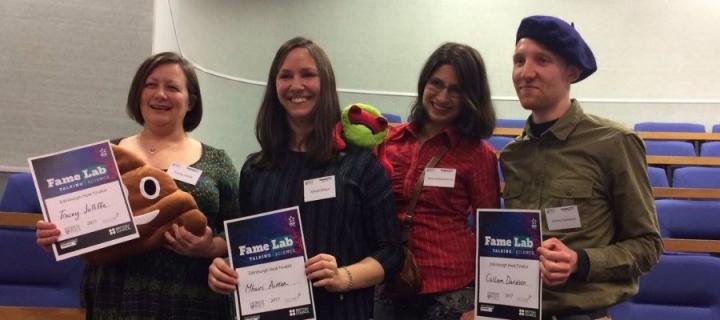News 2016
A selection of news from the Usher Institute in 2016 - major publications, awards, visitors and more.
Usher researcher wins FameLab competition heat

Dr Mhairi Aitken is one of four winners of FameLab's Edinburgh heat, moving to the Scottish finals of the international science communication competition.
Cooking heat may hold clues to heart disease
Food cooked at high heat may carry toxic chemicals that raise risk of heart disease, researchers have warned.
Sexual violence in war has lasting effect

Survivors of sexual violence in war zones suffer long-lasting consequences, such as physical injury, mental trauma and social stigma, research suggests.
New book: Concepts of Epidemiology. Third Edition.
Integrating the ideas, theories, principles, and methods of epidemiology. By Prof Raj S. Bhopal. Oxford University Press.
Over 70s missing out on palliative and end of life care

Most people aged 70 and over in Scotland are missing out on palliative care as healthcare professionals can find it difficult to know when to introduce this approach in older people, according to a new report from the University of Edinburgh and terminal illness charity Marie Curie.
Technology tackles healthcare corruption

Mobile phone technology could help to beat bad practices in healthcare delivery, research suggests.
COPD care costs to exceed £2.5bn

The cost of treating a smoking-related chronic lung disease will exceed more than £2.3 billion per year in England – and £200 million in Scotland – by 2030, research suggests.
Bill for asthma care exceeds £1bn

Asthma care costs UK at least £1.1bn each year, study shows.
Gene curbs coffee urge, study finds
Researchers have identified a gene that appears to curb coffee consumption.
Ethnic minorities in Scotland live longer than White Scots
People of ethnic minority background in Scotland can expect to live several years longer than White Scots, a study has shown.

